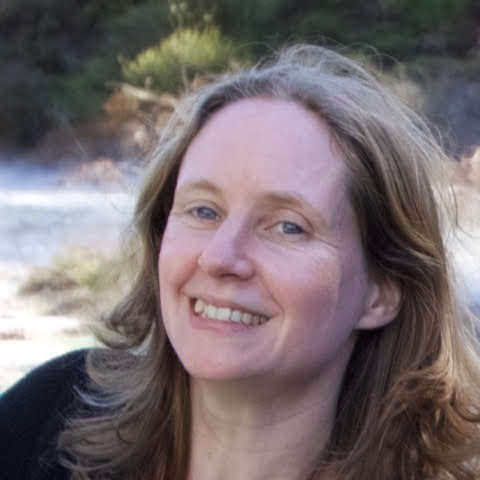Two Trinity researchers secure prestigious ERC awards
Posted on: 17 March 2022
Two Trinity College researchers – Dr Emma Tomlinson and Dr Fiona Smyth – have received prestigious awards from the European Research Council (ERC) worth close to €3.5 million in the latest round of results announced.

Dr Emma Tomlinson, Associate Professor in Geology, School of Natural Sciences, has been awarded an esteemed ERC Consolidator Grant (worth up to €2 million) for the project LITH03: Quantifying the formation and evolution of the Archaean lithospheric mantle which will seek to answer the long-standing question: ‘How did the cratonic lithosphere form?’ Trinity College is the only university in Ireland to receive a Consolidator Grant from the ERC, notified in this particular round of funding.
Dr Fiona Smyth, School of Education and Trinity Long Room Hub, has been awarded a distinguished ERC Starting Grant (worth up to €1.5 million) for the project SpectresCamouflage: The Sound of Silence which links architecture and construction with music, military history and acoustics to explore how different disciplines propelled each other forward in the design and exploitation of the silent environment in the twentieth century.
The ERC Programme has been identified as an area of strategic relevance for Trinity (Funding Diversification Plan 2014) and for Ireland (Innovation 2020) and is widely supported by Science Foundation Ireland, Enterprise Ireland and the Irish Research Council as the most highly regarded source of funding for “frontier research”. The ERC offers an exciting opportunity for researchers to fund their best idea, it gives them a significant amount of money over 5 years and allows them to dedicate themselves to delivering the best frontier research in their field. This will have significant impacts of the development of their careers.
Provost Linda Doyle said:
I want to congratulate Emma and Fiona on this fantastic success. ERC awards are a great recognition of research quality and it is wonderful to see the ERC supporting such a wide variety of brilliant research.
The awards demonstrate the importance of supporting ambitious curiosity-led research which produces impactful new knowledge at the frontiers of disciplines.
Dean of Research, Professor Wolfgang Schmitt, a previous winner of an ERC Consolidator Grant, extended warm congratulations to both awardees, saying:
I am delighted to see these exciting projects funded and impressed by the momentum of Trinity’s superb research community in building on significant recent ERC success in the School of Natural Sciences and the Faculty of Arts, Humanities and Social Sciences. This is a wonderful opportunity for Emma and Fiona to build their research teams, mentor a new generation of PhDs and postdoctoral researchers and advance their ambitious scholarly research agendas.
Dr Emma Tomlinson’s Research

Emma Tomlinson, Associate Professor in Geology (School of Natural Sciences), will seek to answer the long-standing question: “how did the cratonic lithosphere form?” The formation of the Archean lithospheric mantle was a key event in Earth history, resulting in the construction of the first continents, termed cratons, and laying the foundations of our habitable planet. Understanding how the cratonic lithosphere formed and its subsequent evolution have profound implications, not only for our understanding of the origin of the continents, but also for the onset of modern plate tectonics and the thermal evolution of the Earth’s mantle.
LITHO3 is an innovative and ambitious project that will have a significant impact on our understanding of the long-term evolution of the Earth and other rocky planets in our solar system.
Dr Emma Tomlinson said:
I am hugely excited to have been awarded an ERC CoG for the project LITHO3. This provides an amazing opportunity to investigate the formation of the cratonic lithosphere, which was a key event in Earh history that led to the development of the first stable continents and so laid the foundations of our habitable planet. The funding will help me to develop new ideas and approaches and to mentor and support PhD students and postdoctoral researchers. I am grateful to the ERC for funding LITHO3 and also to co-workers for their support and input during the application stage.
Dr Fiona Smyth’s Research

Silence is a rare – often beautiful, sometimes discomfiting – phenomenon. Harnessed in different manners, silence has multiple cultural, societal, scientific, psychological, artistic and military implications. In the 20th Century, the impact and exploitation of silence manifested in the technological search for the soundless environment: a search which centred upon environmental control and design.
Dr Fiona Smyth’s (School of Education, Trinity Long Room Hub) Spectres & Camouflage project explores how technologies for silence and environmental design were used and reappropriated across disciplines in the 20th Century. Linking architecture and construction with music, military history, and acoustics, it looks at how these disciplines interacted and propelled each other forward in the design and exploitation of the silent environment between 1938 and 1970. Ultimately, this project offers a new concept of environmental design – with silence as a catalyst – mapped across disciplines.
Dr Fiona Smyth said:
I can’t even begin to express how delighted and honoured I am to receive this award for my project ‘Spectres & Camouflage’. It is an unprecedented opportunity to develop ideas that have been swirling around for years, and to build on the foundations of research as an MSCA Global Fellow at Harvard and Trinity College Dublin.
‘Spectres & Camouflage’ links architecture and construction with music, military history and acoustics to explore how different disciplines propelled each other forward in the design and exploitation of the silent environment in the twentieth century. It is a really exciting time to conduct this research – just as documents that were previously classified are now entering the public domain – and I am very fortunate to be surrounded by a wonderful network of brilliant friends, family, colleagues and students. I am so immensely grateful for their support, thought-provoking questions, and inspiration and especially for the insight and guidance of Trinity’s Research Development Office in bringing this proposal to where it is now.
Further information is available at:
- https://erc.europa.eu/funding/advanced-grants
- https://www.tcd.ie/Biochemistry/people/laoneill/
- http://www.horizon2020.ie/minister-halligan-welcomes-irelands-continued-success-winning-eu-funding-research-innovation/
Media Contact:
Ciara O’Shea, Media Relations Officer | coshea9@tcd.ie | +353 1 896 4337Trinity researchers secure prestigious ERC awards
Posted on: 03 September 2020
Two researchers from Trinity – Assistant Professor Claire Gillan and Dr Alessandro Lunghi – have been awarded prestigious European Research Council (ERC) Starting Grant Awards worth €3 million in the latest round of results, which have been released today.
Additionally, another ERC Starting Grant project is currently entering its launch phase at Trinity as Al Maktoum Associate Professor, Mohamed Ahmed, recently began his project, which was retained on the funding list from a previous round.
Also listed as a Trinity winner is Dr Lorna Lopez, but she has recently taken up a position in NUI Maynooth, where she will carry out her project.
Awarded annually to individual researchers to help them build their own teams and conduct pioneering research across all disciplines, ERC Starting Grant awards are highly competitive.
Professor Linda Doyle, Dean of Research at Trinity, said:
“We are very proud of our three award-winners and wish them our warmest congratulations. Claire, Alessandro and Mohamed’s fascinating projects span very different disciplines but have in common the need to use innovative, creative approaches to research, and all three promise to make genuine impacts.
“ERC Starting Grant awards are exceptionally competitive, and provide crucial support for bottom-up frontier research which can often help to address significant societal challenges. Claire, Alessandro and Mohamed’s funding will also support a number of highly talented PhD and Postdoctoral researchers. This is vital because it bolsters the very foundations of excellent academic research and will nurture the next generation of research leaders. It is especially important right now as postdoctoral and early career researchers are particularly vulnerable to the negative impacts of COVID-19 due to the knock-on effects of funding cuts and reduced faculty opportunities at institutions all over the world.
“While we celebrate the success of our colleagues we note that the recently approved European Council budget for Europe (2021-2027), as it stands, will negatively impact the ERC Budget. This is of huge concern. The unprecedented challenge of Covid-19 provides a stark example of why research must be substantially supported. Trinity applauds the ongoing European Parliament negotiations to secure a more ambitious investment in research and innovation under Horizon EU.”
Trinity’s winners
Claire Gillan, HABIT
Claire Gillan, from Trinity’s School of Psychology, is also a PI in the Trinity College Institute of Neuroscience (TCIN), the Global Brain Health Institute (GBHI) and an academic collaborator with ADAPT, the SFI Research Centre for Digital Media Technology.

Following large numbers of individuals over many weeks, both remotely using the app and in-person using electrophysiology, she will reveal the precise brain changes that support this most fundamental form of learning. She will use these methods to understand not just how to promote good habits and squash the bad ones, but also to develop new ways that we can tackle disorders of compulsivity – from addiction to obsessive-compulsive disorder.
Leveraging the power of citizen science through her already successful smartphone app (www.neureka.ie), her project is expected to reveal how we can harness the power of habits in our lives and better understand key aspects of mental illness. Download the app to get involved now! http://onelink.to/csrw86
Professor Gillan said:
“It’s definitely not a traditional way to do research, so we are really delighted that the ERC have decided to back our work. We hope that by harnessing people-power through our smartphone app, HABIT will be truly disruptive in the field of mental health neuroscience.”
Alessandro Lunghi, AI-DEMON
Alessandro Lunghi, from Trinity’s School of Physics, is also a Research Fellow at the Trinity Centre for Research on Adaptive Nanostructures and Nanodevices (CRANN) and AMBER, the SFI Research Centre for Advanced Materials and BioEngineering Research.

Alessandro’s project will lay the foundations for a major technological breakthrough with his project AI-DEMON: Artificial intelligence design of molecular nano-magnets and molecular qubits.
AI-DEMON seeks to design magnetic molecules with long spin lifetimes at ambient temperatures by tuning the main microscopic interaction responsible for spin relaxation: the spin-phonon coupling. Alessadnro will use novel techniques in his research, which is ultimately expected to represent a strong disruption in the approach to theoretical modelling and the discovery of new magnetic molecules.
His work will propel the field into a new and modern era and make significant impact beyond the field of molecular magnetism – with important developments expected in the fields of bio-inorganic chemistry, for example.
Dr Lunghi said:
“I am incredibly grateful to the European Research Council for this amazing opportunity. Thanks to this grant I will establish a new research group at Trinity College Dublin and pursue key technological goals related to the design of materials for quantum technologies.
“I have always been fascinated by the possibility of designing new materials starting from nothing more than the knowledge of the laws of physics. In this project, my team and I will attempt a fully automated computational design of magnetic molecules for quantum technological applications. Artificial intelligence methods will be at the core of our approach and I expect we will be able to push forward the current boundaries of knowledge on quantum magnetic materials.”
Mohamed Ahmed, APCG
Mohamed Ahmed recently began his ERC Starting Grant-funded project APCG: Arabic Poetry in the Cairo Genizah having joined Trinity’s School of Languages, Literatures and Cultural Studies as part of the formation of its new Al Maktoum Centre for Middle Eastern Studies.

His project will reveal hitherto hidden aspects of social and cultural history of the Jews in the Middle East with regard to literacy, education and intercommunal relations and explore hierarchies, interpersonal relationships and the social function of poetry in medieval and early modern Egypt through the study of Genizah poetry.
Professor Ahmed said:
“I feel extremely privileged to have secured a grant from the European Research Council. This prestigious award will allow me to lead academic teamwork to expand my work on Arabic Poetry in the Cairo Genizah comprehensively. The project investigates a neglected collection of Arabic and Judaeo-Arabic fragments held at arguably the most important Jewish treasure trove: the Cairo Genizah. The fragments, numbered in the hundreds, constitute a unique source for understanding mediaeval and Early Modern Egypt from three main perspectives: Arabic studies, Jewish social and cultural studies, and anthropological studies.”
